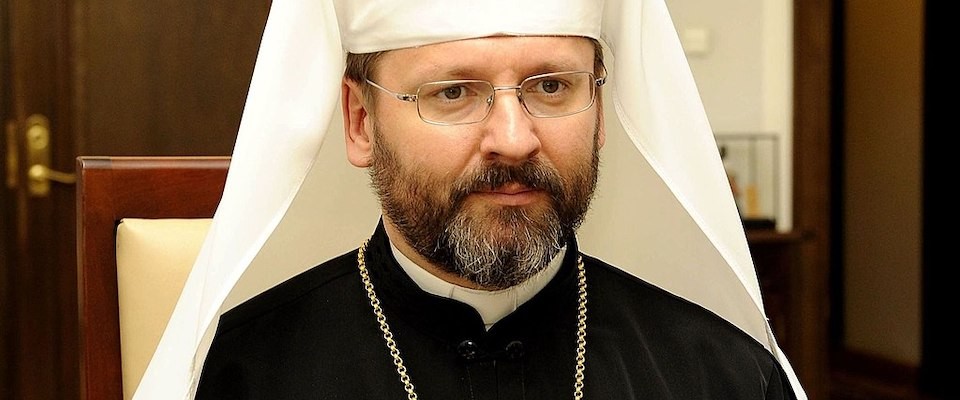- Feb 5, 2002
- 166,654
- 56,276
- Country
- United States
- Faith
- Catholic
- Marital Status
- Married
- Politics
- US-Others
In early July, Vladimir Putin toured an Orthodox church in St. Petersburg, piously crossed himself, and lit a candle. Hours before, Russian missiles had attacked the Ukrainian port city of Odessa, demolishing the roof of the historic Orthodox Transfiguration Cathedral, setting the building afire and melting some of its gold icons. The dwindling numbers of imbeciles who regard Putin as the savior of Christian civilization might ponder that juxtaposition of events.
Shortly after this Russian atrocity, OSV News interviewed Major Archbishop Sviatoslav Shevchuk, the head of the Ukrainian Greek Catholic Church and a heroic leader of his people. When I first met the archbishop in 2011, neither of us imagined that, eleven years later, he would figure prominently on a list of those to be assassinated after the Russian conquest of Kyiv—or that Russian moles would have penetrated his cathedral choir in the months before the invasion of Ukraine, looking to wreak havoc as genocidal Russian troops smashed the Ukrainian capital.
Over more than 500 days of war, Major Archbishop Shevchuk has confronted a horrific situation with a resolve born of deep faith—the Christocentric, cruciform faith that animates his pastoral outreach to the war’s victims. His responses to questions from OSV’s Gina Christian captured the archbishop’s human and priestly qualities in a moving way:
Continued below.

 www.firstthings.com
www.firstthings.com
Shortly after this Russian atrocity, OSV News interviewed Major Archbishop Sviatoslav Shevchuk, the head of the Ukrainian Greek Catholic Church and a heroic leader of his people. When I first met the archbishop in 2011, neither of us imagined that, eleven years later, he would figure prominently on a list of those to be assassinated after the Russian conquest of Kyiv—or that Russian moles would have penetrated his cathedral choir in the months before the invasion of Ukraine, looking to wreak havoc as genocidal Russian troops smashed the Ukrainian capital.
Over more than 500 days of war, Major Archbishop Shevchuk has confronted a horrific situation with a resolve born of deep faith—the Christocentric, cruciform faith that animates his pastoral outreach to the war’s victims. His responses to questions from OSV’s Gina Christian captured the archbishop’s human and priestly qualities in a moving way:
What can you say to the mother who lost her son? What kind of consolation can you find for someone whose life is destroyed because of this war?
The response is just to be present, to stand with and maybe to cry with them, to share their pain and sorrow. It is not always possible even to say, “I understand you.” I learned that visiting our soldiers in the hospital. The most difficult phrase to hear for that soldier lying without two legs is for somebody to tell him, “I understand you.”
I would call this a sacrament of presence—when we are present, sharing this sorrow, God himself is present. If you share the sorrow, that pain can diminish. And if you invite these people to help one another, such acts of charity can be therapeutic. . . .
Continued below.

True and False Reconciliation | George Weigel
Major Archbishop Shevchuk has confronted a horrific situation with a resolve born of deep faith.
